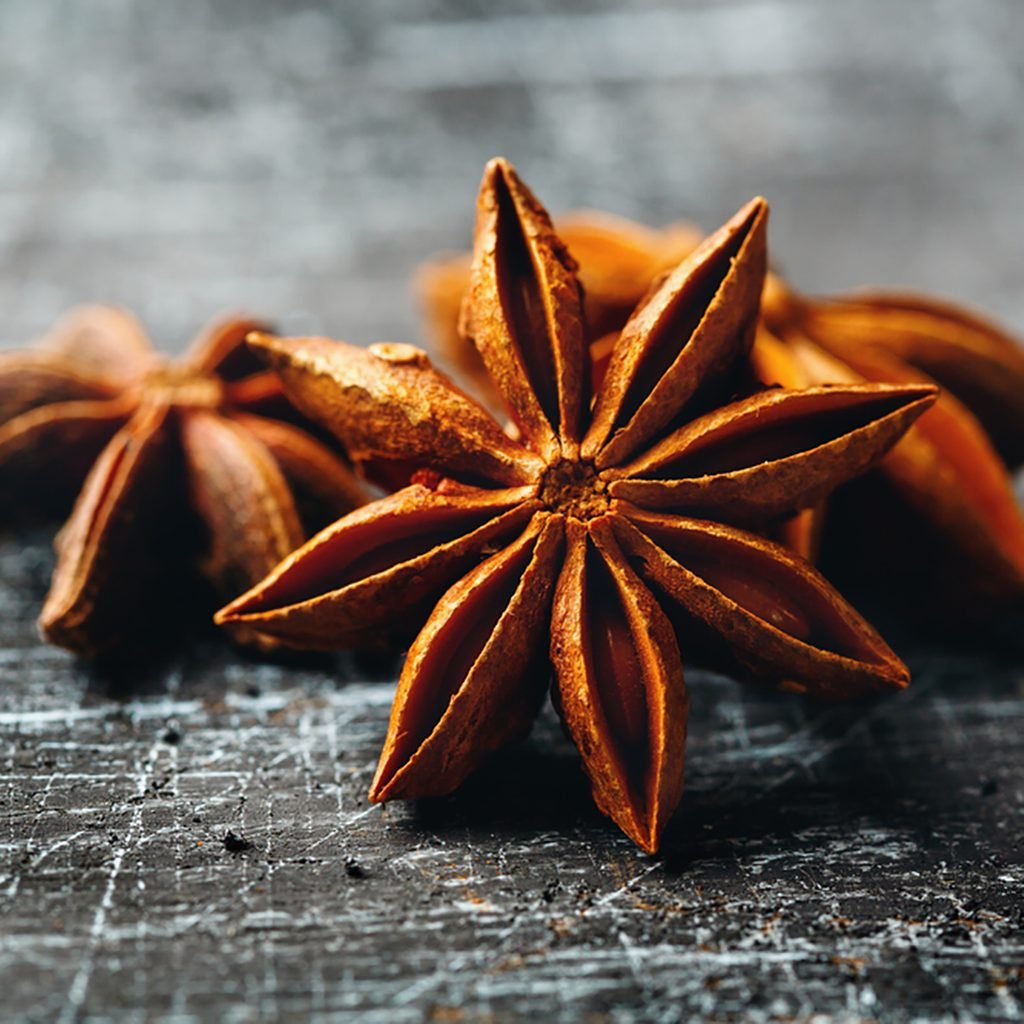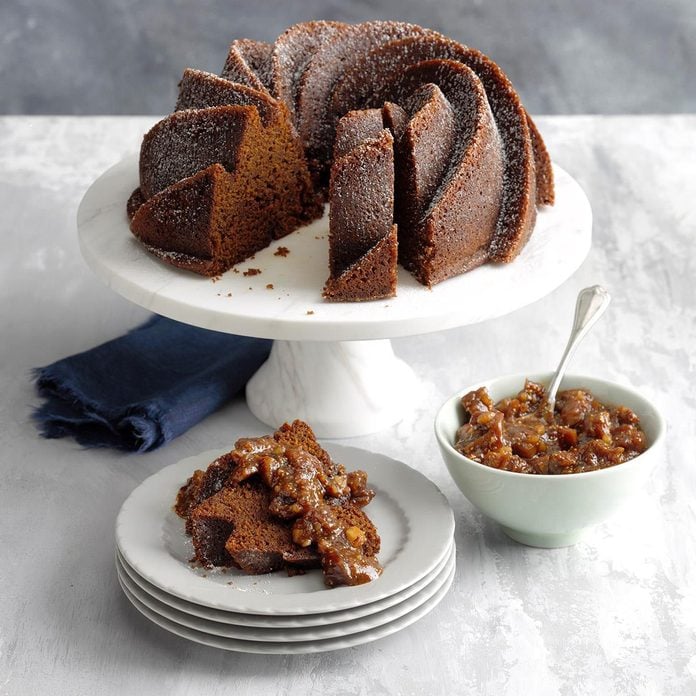Double-Drizzled BiscottiSemisweet and white chocolate drizzles give these biscotti a pretty look. The baking time is shorter than for some biscotti, so they're a little softer. —Cheryl Ludemann, Boonville, New York
Gingerbread with Fig-Walnut SauceI experimented with aniseed this past holiday season and fell in love with the licorice flavor. It really enhances the gingerbread spices and fig sauce in this extraordinary cake. —Shelly Bevington-Fisher, Hermiston, Oregon
Cherry BiscochitosI discovered the wonderful anise flavor of
biscochitos, which are traditional cookies of New Mexico. I created my own version with maraschino cherries and fresh cranberries. —Mary Shivers, Ada, Oklahoma
Grossmutter's PeppernutsBefore Christmas, my grandmother would bake peppernuts and store them until the big day. When we came home from school, the whole house would smell like anise and we knew the holiday season was about to begin. —Marilyn Kutzli, Clinton, Iowa
LebkuchenIt's tradition for my family to make these German treats together. The recipe came from my great-grandmother's cookbook, and judging from the amount of requests I get, it has certainly stood the test of time. —Esther Kempker, Jefferson City, Missouri
Anise Icebox CookiesThese crisp, old-fashioned spice cookies are one of my favorite anise recipes to cook up—especially around the holidays. —Sharon Nichols, Brookings, South Dakota
Anise GumdropsWith their bright color and frosty sugared look, these homemade gumdrops are irresistible. They're softer than the store-bought kind and have tongue-tingling anise flavor. —Richard Bunt, Painted Post, New York
Licorice CaramelsFans of black licorice won't be able to stop eating these gooey caramels. I appreciate their ease of preparation. —Donna Higbee, Riverton, Utah
Wild Rice & Cranberry LoavesThis is an incredibly fragrant bread with lots of texture from wild rice and dried cranberries. It's hearty enough for sandwiches, but with a touch of honey, I could even eat this for dessert! —Barbara Miller, Oakdale, Minnesota
German Christmas CookiesThis little spice cookie tastes very European and is similar to Pfeffernüsse or “peppernut.” We make ours with cozy spices, anise flavoring, almonds and candied citron. —Carole Mueller, Florissant, Missouri
Italian Honey ClustersMy mother made these treats, known as struffoli in Italian, for neighbors, teachers and anyone who stopped by. This is an Easter, Christmas and special-occasion classic, and many call them cookies even though these are honey-coated bits of deep-fried dough. —Sarah Knoblock, Hyde Park, Indiana
Anise & Wine CookiesMy grandmother did not speak English very well, but she knew the language of great food. These wine cookies are crisp and best eaten after being dunked in even more wine.—Julia Meyers, Scottsdale, Arizona
Mole PoblanoYou'll love this rich, thick mole sauce with it's authentic flavor. The result is well worth the prep. mdash; Taste of Home Test Kitchen, Milwaukee, Wisconsin
Easy BizcochitosBizcochitos, with their wonderful citrus and spice flavors, are special cookies we look forward to each year. It just isn't Christmas Eve at our house if we don't have these cookies with mugs of Mexican hot chocolate.
Plum Anise JamGrowing up, my father loved black licorice and all my siblings and I loved it as well. I still love the flavor of black licorice but can't eat the candy anymore for health reasons. This recipe reminds me of the flavor I loved as a child. The delicious jam tastes great with Brie or goat cheese and crackers. —Jill Grueninger, Mequon, Wisconsin
Glazed PfeffernuesseOur version of the classic German cookie is nice to have on hand throughout the holiday season. They stay fresh—and become more intense in flavor—when stored in an airtight container for weeks. —Taste of Home Test Kitchen
Sweet and Golden Easter BreadIt is an Italian tradition to make this sweet, golden braid at Easter. This family heirloom recipe came from my mother-in-law and was passed down to her from her mother. If you're not a fan of raisins, the bread is just as wonderful without them. —Kathi West, Canton, Michigan
Frosted Anise CookiesI love anise flavoring, and my nana loved sugar cookies, so I put them together. This anise cookie recipe has a soft, from-scratch texture. It’s hard to stop at just one! —Rachele Angeloni, North Providence, Rhode Island
Anise BiscottiMy aunt would make anise recipes all the time for dessert and these biscotti were my favorite. I can remember walking into the house and I'd almost swoon when I smelled them baking—the aroma seemed to fill every room. —Esther Perea, Van Nuys, California
Spiced CoffeeI’ve found that those who aren’t necessarily coffee fans often change their tune when they get a whiff of this chocolaty coffee drink. I like to serve
up a big batch at parties. —Joanne Holt, Bowling Green, Ohio
Pfeffernuesse CookiesA German holiday tradition, these fragrant pfeffernuesse cookies pack a warm rush of spices in every bite. Also called peppernuts, they go wonderfully with coffee or tea.—Joanne Nelson, East Stroudsburg, Pennsylvania





















